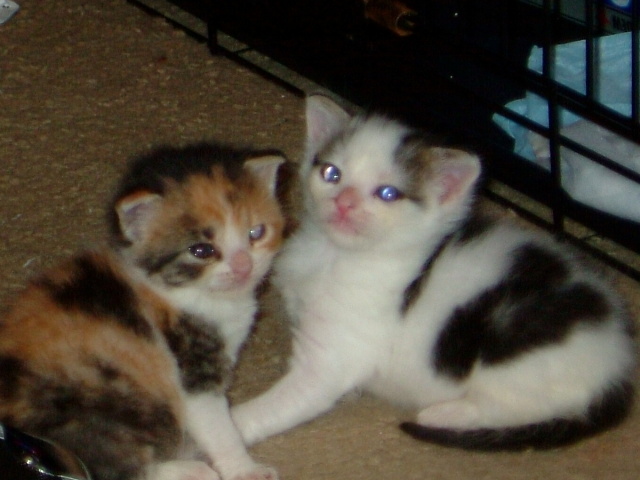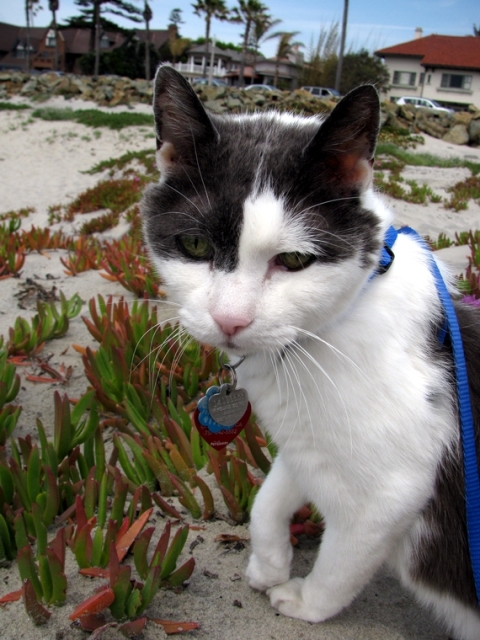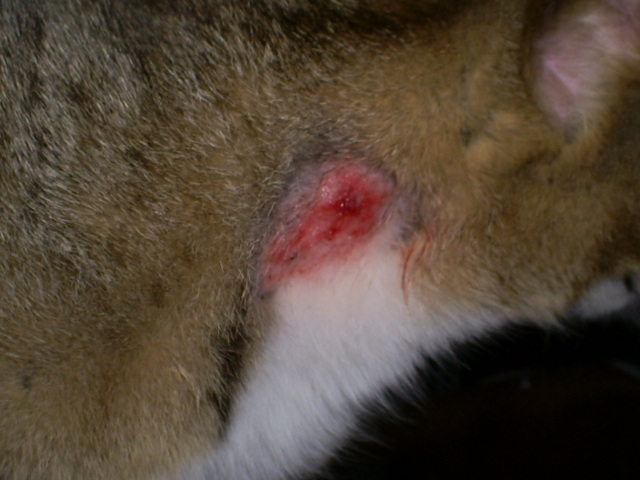QuestionHi Jessica,
I have had my neutered Siamese for almost 13 yrs. He has been only the most loving, sweet, affectionate(needy) boy. About 4 months ago I took in a spayed 8 month old kitten. (I now have 4 cats altogether) My Siamese(Kip) recently has become very upset. He bit my boyfriend, who he's known for 4 yrs. He never bit before. Also, one morning as soon as I got out of bed, I turned around to catch him defecating on my pillow!!! Do you think he is actually telling me how mad he is at me for bringing the baby in? I am trying to give him extra attention, and he & I still have the same "quality time" that we did before the baby cat...he sleeps under the covers with me every night, he sits in my lap every evening to watch T.V. and wind down.... I feel heartbroken about this because I love the new baby..she has brought such joy into the house. Kip is the one who seems miserable. Any thoughts would be greatly appreciated.
Thank you,
Dana
AnswerHi Dana. Certainly, Siamese can be the jealous type! However, if you brought in the kitten 4 months ago and this behavior started very recently, I don't think the two are likely connected.
I think it would be worth a vet visit to see if Kip might be having pain from problems common in older cats, like dental disease, arthritis, or colitis, something along those lines, that might cause a cat to lash out and bite or fail to use the litter box.
The one other thing that comes to mind is Feline Cognitive Dysfunction Syndrome (sometimes shortened to CD, FCD, or CDS). This is very similar to human Alheimer's and is caused by the same thing - protein deposits which cause plaque build up in the brain. The first sign most cat owners notice is failure to use the litter box. Other common symptoms are over vocalization, unprovoked aggression, hiding, disorientation, failure to recognize familiar people/pets, and in some cases, even hallucination. This can be a hard disease for a family to live with, although it's not painful for the cat. While it isn't curable, it is manageable to an extent. Vets are using the same medication that was once favored for treating human Alzheimer's. It's l-deprenyl. Anipryl, the brand used to treat cats with CDS, is actually labeled for use in dogs, but is being shown to be successful for slowing the progression of the disease in at least 75% of cats, and it actually reverses the disease in many cases. This is something you might want to consider if the behavior continues or worsens and no other cause is found.

 Kitty Peeing
Question
Howie
Our kitten is about 8 months old
Kitty Peeing
Question
Howie
Our kitten is about 8 months old
 2 Ferals
Question
Sister and Brother at
Hello!
Im so glad I fo
2 Ferals
Question
Sister and Brother at
Hello!
Im so glad I fo
 18 year old cat has blood clots in urine
Question
Tucker
My 18 year old male neutered cat is hyp
18 year old cat has blood clots in urine
Question
Tucker
My 18 year old male neutered cat is hyp
 My cat is loosing hair .
Question
A picture of the probl
My cat is loosin
My cat is loosing hair .
Question
A picture of the probl
My cat is loosin
 Treating cat dominance/aggression with prozac
QuestionI adopted a 3-year old male from the shelter th
Treating cat dominance/aggression with prozac
QuestionI adopted a 3-year old male from the shelter th